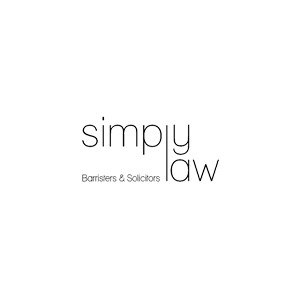Best Oil, Gas & Energy Lawyers in Tauranga
Share your needs with us, get contacted by law firms.
Free. Takes 2 min.
List of the best lawyers in Tauranga, New Zealand
About Oil, Gas & Energy Law in Tauranga, New Zealand
Tauranga is part of New Zealand's Bay of Plenty region, which has significant involvement in the oil, gas, and energy sectors. The laws governing these industries are heavily regulated and complex, given the often intricate nature of oil, gas & energy matters. These laws cover a broad scope from exploration and extraction to sales, distribution, and environmental management. The aim is to maintain a balance between economic benefits and environmental sensitivity.
Why You May Need a Lawyer
Legal advice is crucial for individuals and businesses dealing in oil, gas, and energy for a variety of reasons. You may be entering into complex contractual relationships, dealing with mineral rights issues, facing disputes related to oil and gas property transactions, or negotiating business arrangements such as joint ventures. Issues around compliance with environmental standards or responding to investigations and enforcement actions by regulatory bodies are also commonplace. In these situations, experienced legal counsel can help protect your interests and navigate challenges.
Local Laws Overview
New Zealand has detailed laws and regulations governing oil, gas, and energy industries. Key legislation includes the Crown Minerals Act, the Resource Management Act, and the Exclusive Economic Zone and Continental Shelf Act. These laws regulate aspects such as exploration permits, royalties, environmental consent and safety standards. In Tauranga, local laws also pertain to iwi (Māori tribe) rights and considerations, including those related to lands and offshore areas.
Frequently Asked Questions
What rights do I have if oil or gas is discovered on my property?
According to the Crown Minerals Act, if oil or gas is found on your private property, the rights to these minerals typically belong to the Crown (Government of New Zealand), not the landowner. However, compensation can be negotiated.
How are royalties structured for oil and gas in Tauranga?
Royalties for oil and gas resources are determined by the Crown Minerals Act. They could be either a percentage of the profits or a percentage of the sales revenue, the higher of those two.
What are the environmental regulations for the oil, gas & energy sector in Tauranga?
Companies must comply with stringent environmental regulations outlined by both local and national laws like the Resource Management Act and the Exclusive Economic Zone and Continental Shelf Act. Environmental considerations include managing waste, water quality, soil contamination, and air emissions.
Do I need consent to start an oil, gas, or energy operation?
Yes, you will need multiple consents and permits from different regulatory bodies, such as environmental consent from the local city council and exploration or mining permits from the government.
What legal obligations are there towards iwi in oil, gas, and energy projects?
Engagement with iwi is crucial in New Zealand’s legal framework, especially on projects affecting natural resources. Parties may need to engage in good faith consultation with iwi or potentially provide for co-management arrangements or benefits sharing.
Additional Resources
New Zealand Petroleum and Minerals is the governmental body that administers the laws related to oil, gas, and minerals. For issues concerning the environment, Environment Bay of Plenty is a key body. There are also numerous legal firms based in Tauranga that specialize in oil, gas & energy law, and provide advice and representation.
Next Steps
If you need legal assistance, it is advisable to consult with a lawyer experienced in New Zealand's oil, gas & energy law. They can provide valuable advice and guide you through compliance and negotiation processes. It's also beneficial to become familiar with the key laws and keep updated with changes in regulations that could impact your situation.
Lawzana helps you find the best lawyers and law firms in Tauranga through a curated and pre-screened list of qualified legal professionals. Our platform offers rankings and detailed profiles of attorneys and law firms, allowing you to compare based on practice areas, including Oil, Gas & Energy, experience, and client feedback.
Each profile includes a description of the firm's areas of practice, client reviews, team members and partners, year of establishment, spoken languages, office locations, contact information, social media presence, and any published articles or resources. Most firms on our platform speak English and are experienced in both local and international legal matters.
Get a quote from top-rated law firms in Tauranga, New Zealand — quickly, securely, and without unnecessary hassle.
Disclaimer:
The information provided on this page is for general informational purposes only and does not constitute legal advice. While we strive to ensure the accuracy and relevance of the content, legal information may change over time, and interpretations of the law can vary. You should always consult with a qualified legal professional for advice specific to your situation.
We disclaim all liability for actions taken or not taken based on the content of this page. If you believe any information is incorrect or outdated, please contact us, and we will review and update it where appropriate.

















